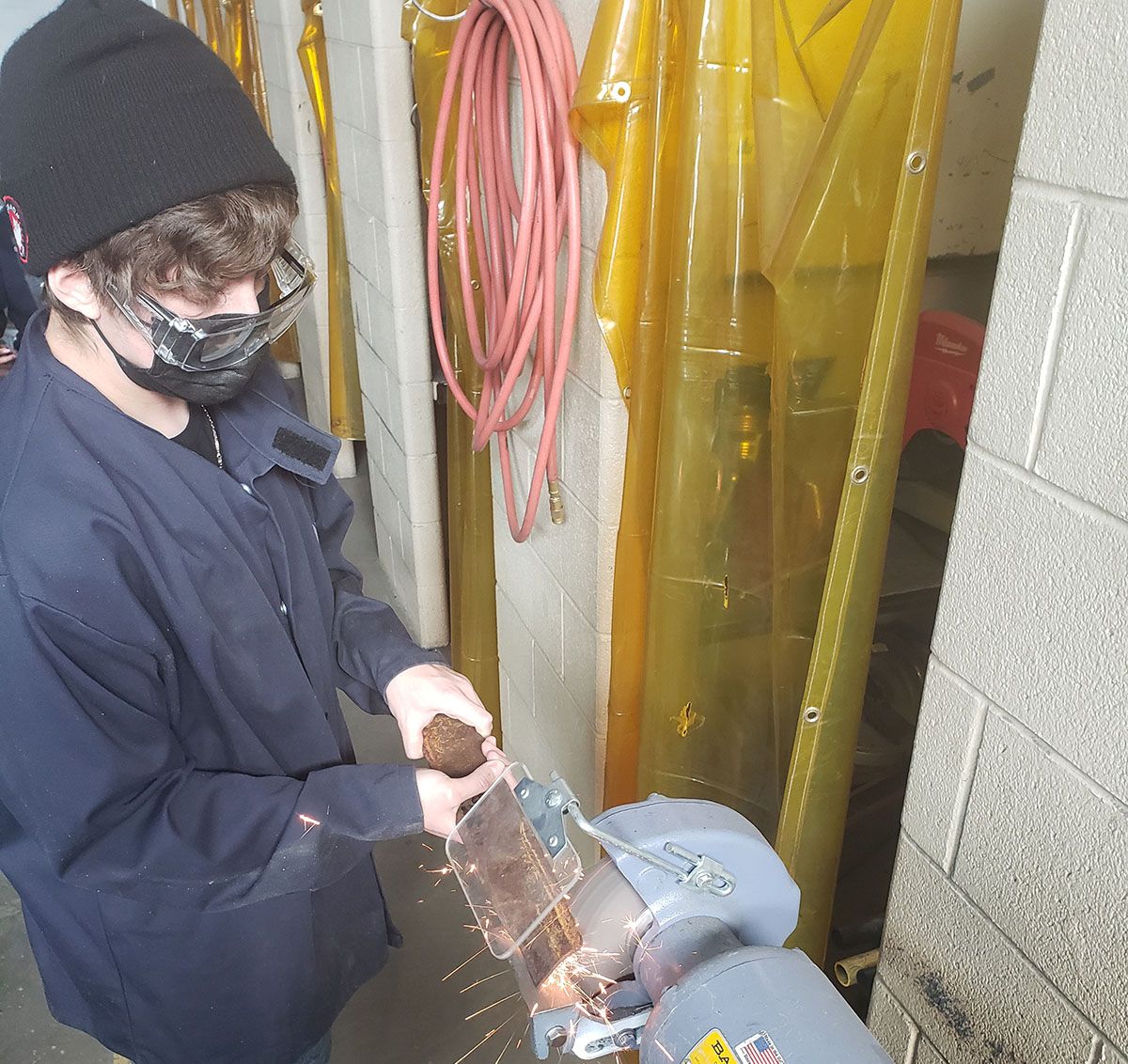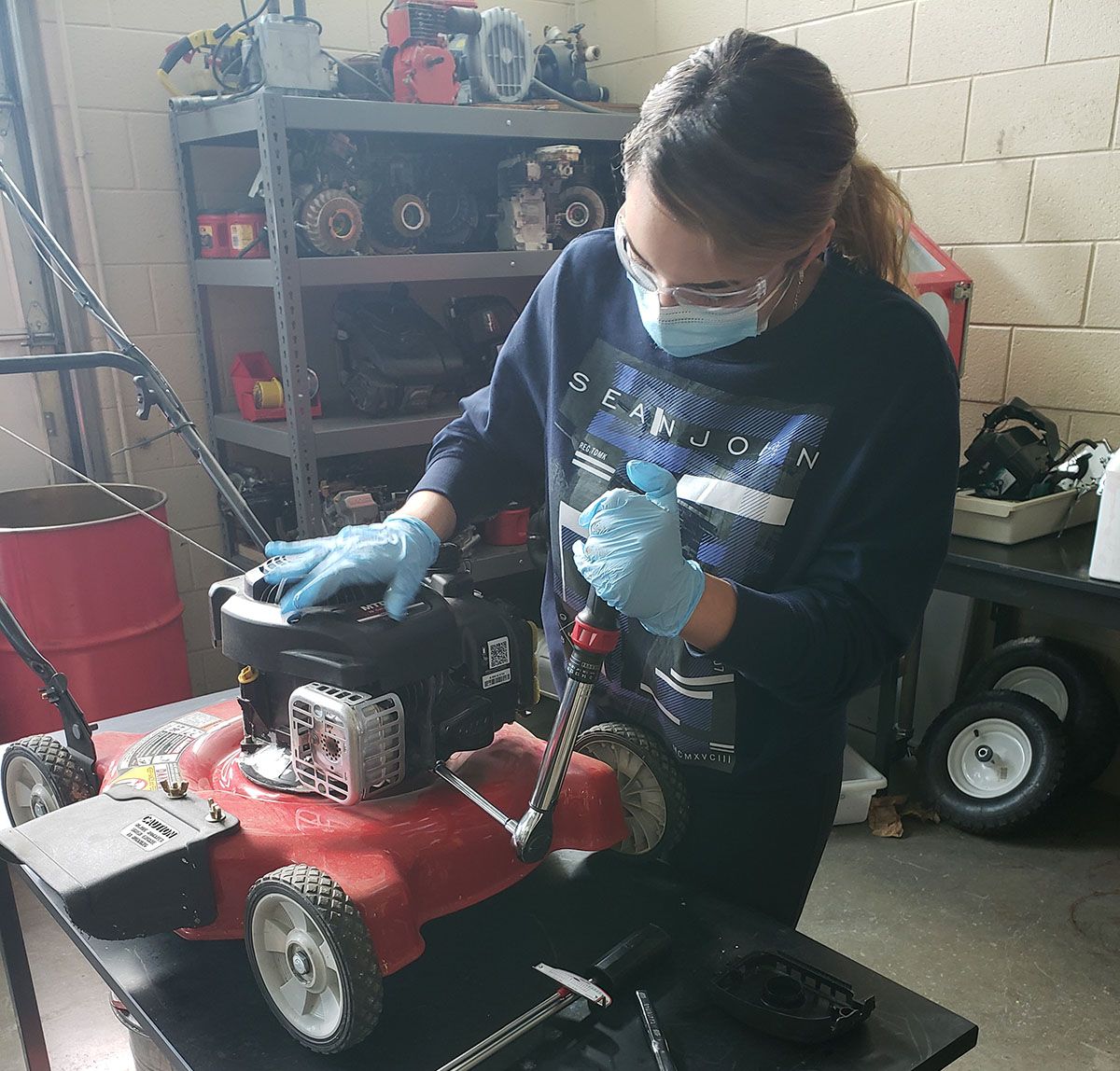CTE Curriculum
Prepare learners with CTE curriculum aligned to industry standards.
Case Study
Westminster, Start Your Engines
The Study
As the flowers begin to bloom, birds sing and animals prance, the Northern Hemisphere knows spring is coming. The grass fades from dull to a bright green and lawn owners start their mowers for the first time. Yet, the lawn mower is out of oil, the engine is dirty, and it needs a new air filter.
The last thing agricultural students at Westminster High School want is for a lawn mower not to start as the winter fog lifts and spring has sprung. As a part of their educational experience, the agricultural students at Westminster High School, located in Westminster, Colorado, host a community-wide event to ensure lawn mowers are prepared for the upcoming season.
Westminster offers three agricultural pathways, including animal science, plant science and power structure technical systems (PSTS). While the state of Colorado is bursting with agricultural production, the majority of Westminster’s students do not have a traditional agricultural background.
To help students understand the importance of the industry and showcase careers within the industry, Heather Crabtree and Lucas Naeger, agricultural teachers at Westminster High School, have designed their courses to meet their students’ interests and the industry’s needs. Instead of focusing on traditional agricultural practices, Crabtree and Naeger emphasize career and employability skills.
Naeger teaches engine equipment and technology, welding and fabrications courses within the PSTS pathway. As a part of the engine technology course, students can earn the Equipment and Engine Technology Council (EETC) Principles of Small Engine Technology Certification.
The EETC Principles of Small Engine Technology Certification verifies students have the competencies needed to begin a career in the power equipment industry. Hosted on iCEV’s testing platform, the certification validates students have the skills and knowledge to troubleshoot, repair, service and maintain small engines.
“I don’t think I can drive home enough the importance of these certifications and the confidence the students receive,” said Naeger. “These certifications are meaningful outside of our school, they are meaningful in the industry, which is so important.”
Students enrolled in the engine technology course spend the first half of the course learning the basic skills and terminology associated with small engines. By the end of the course, students can properly maintain and service a small engine. Rather than taking a traditional final assessment in the small engines course, Naeger’s students are assigned a school-based enterprise assignment.

Naeger utilizes hands-on experiences during his lectures.
School-Based Enterprise
In the spring, students are tasked with developing and executing a lawn mower clinic within the Westminster community. From planning the time and date to servicing the lawn mowers brought in, the clinic is student driven.
Students apply and go through an interview process to obtain their roles for the clinic. Based on their knowledge, skills and professionalism, students will be hired for various positions, including managers and technicians.
By the time of the event, students enrolled in the course will have taken the exam to earn the EETC industry certification. Those who have earned the EETC certification have proved they have the knowledge and skills to manage the clinic and will likely serve as a manager or a lead technician.
“This project shows them, if you want to advance to the next level, then you need to receive certifications and training,” said Naeger. “I want to take this project and drive home what the industry looks like, what advancing within the industry looks like and what becoming a professional means.”
Community members have a sense of peace knowing a trained professional is working on their lawn mower. “Certified technicians are a big thing, for both our community members’ trust and our students’ self-belief,” said Crabtree. The clinic is held in the spring, right before everyone needs their lawn mowers running. Once the lawn mowers are brought in, students will spend class time inspecting and servicing the small engines.

Students learn how to properly maintenance and service small engines during the clinic.
The lawn mower clinic serves as students’ Supervised Agricultural Experience (SAE) for FFA and as a fundraiser for the department. Through the school-based enterprise assignment, Naeger’s students practice their organization, communication, problem-solving and leadership skills. Ultimately, Naeger’s students receive a glimpse of how a career in the small engine industry looks.
“This project allows our students to say they are certified and capable of doing this particular job,” said Crabtree. “For many of our students, this project empowers them to chase their career goals. The idea that our students have something their peers don’t is huge for their confidence.”
By introducing a school-based enterprise experience in their courses, Crabtree and Naeger set their students up on a path to educational and career success. Westminster High School students can receive promotions and earn higher wages in the industry by earning industry certifications. Regardless of the career students choose Crabtree and Naeger continually set their students up for success.
WESTMINSTER HIGH SCHOOL
WESTMINSTER, COLORADO
About iCEV
Since 1984, iCEV has specialized in providing quality CTE curriculum and educational resources. iCEV is the most comprehensive online resource for CTE educators and students, offering curriculum for several major subject areas, including agricultural science, trade & industrial education, business & marketing, career exploration, family & consumer science, trade & health science, law enforcement and STEM education. iCEV also acts as a certification testing platform for industry certifications. Recognized companies and organizations utilize iCEV as the testing platform for their certifications. Additionally, iCEV offers Eduthings, a CTE data management platform that simplifies reporting for industry certifications, work-based learning, CTSO participation, and more. For more information, visit www.icevonline.com.




